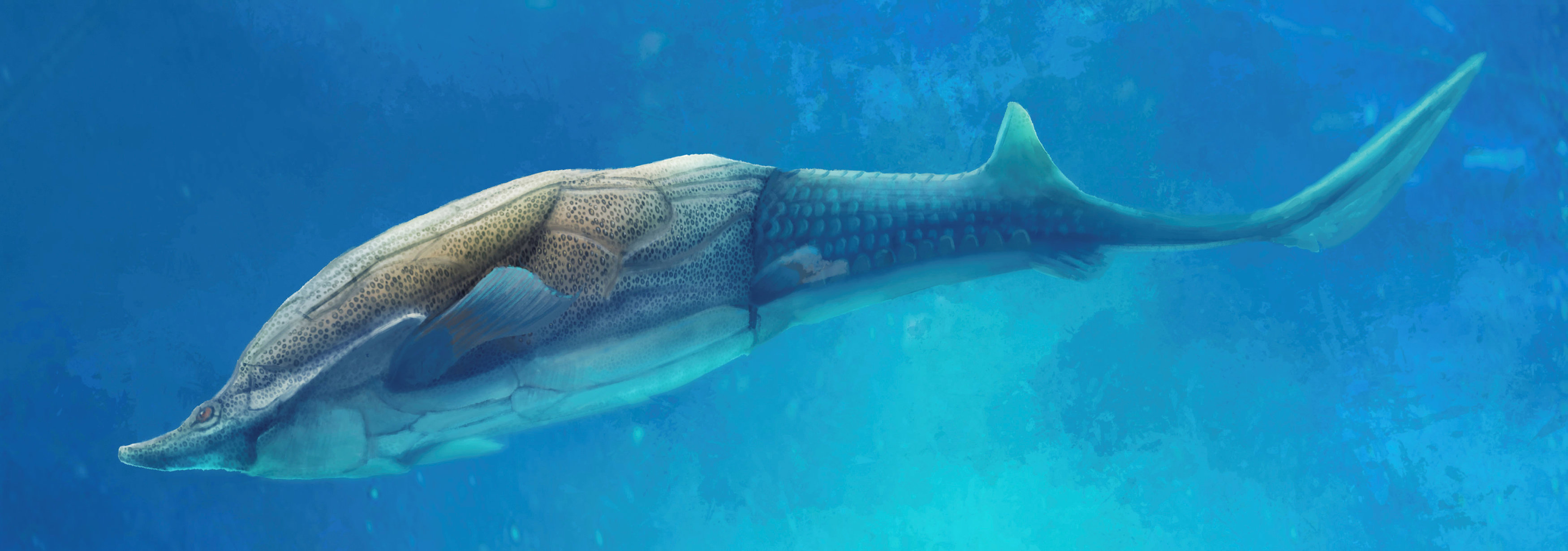A bottom-dwelling, mud-grubbing, armored fish that swam in tropical seas 423 million years ago is fundamentally changing the understanding of the evolution of an indisputably indispensable anatomical feature: the jaw.
Scientists said on Thursday they unearthed in China's Yunnan province fossils of a primordial fish, called Qilinyu rostrata, that was about 12 inches (30 cm) long and possessed the telltale bones that are present in modern vertebrate jaws, including in people.
Qilinyu was part of an extinct fish group called placoderms, clad in bony armor covering the head and much of the body and boasting jaws armed with bony plates that acted as teeth to slice and dice prey.



